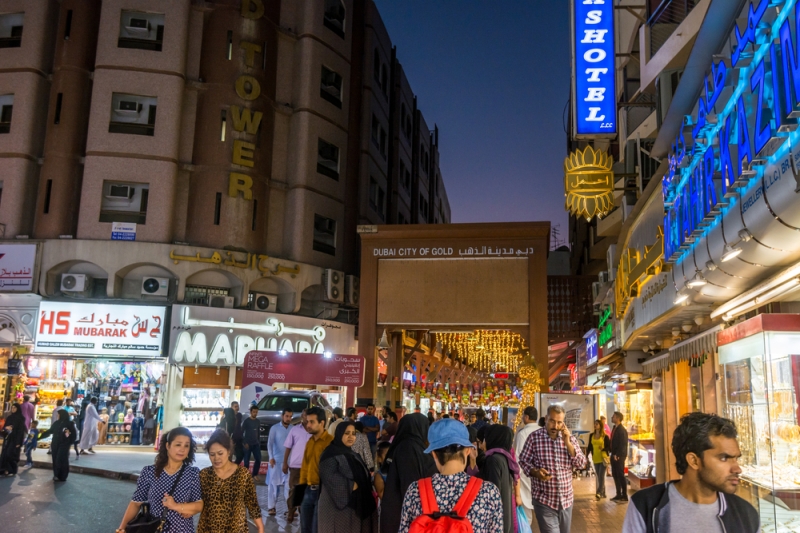
Local laws and customs are part of the national culture, and ignorance of them can lead to unpleasant consequences. And while in most European countries everything is more or less clear, in Singapore, for example, you can get a rather large fine for throwing a wrapper on the ground, and in Bangkok for feeding an elephant. By carefully studying the prohibitions in force in the country of your destination, you can protect yourself not only from losing money, but also from getting acquainted with the police. We talk about seven countries whose laws are worth studying more closely.

Iran and closed clothing
In Iran, special police monitor the appearance of residents, and all established rules apply not only to locals, but also to visiting travelers. Thus, men here are prohibited from wearing T-shirts and shirts with sleeves above the elbow. Girls are encouraged to wear long, loose dresses and be sure to cover their heads with a scarf. If a woman is in a public place without a headscarf, she may be arrested and not even allowed to leave the plane upon arrival. Interestingly, Iranians themselves do not wear a tie, considering it an element of clothing hostile to culture. In addition, Western music is strictly prohibited in the country: make sure that your phone does not suddenly start playing jazz or rock music in a public place.

Italy and Venetian pigeons
It seems that St. Mark’s Square in Venice is never empty: flocks of pigeons (as well as crowds of people) have firmly merged with the image of the city and have become its constant part. It is not surprising that feeding pigeons in the square soon became a favorite tourist tradition. So popular that in 2008 the city authorities were forced to ban it. Overfed birds have a detrimental effect on the historical sights of the city – the government argued its point of view. Breaking the ban is not cheap. On average, the fine for feeding pigeons in Venice is $50-60, and the maximum fine was $600.

Southeast Asia and durian
Durian is the only fruit in Thailand whose advertising images hang on the walls of hotels and cinemas, and on the sides of planes, buses and taxis. In Southeast Asia, the prickly durian, which looks like a cross between a pineapple and a porcupine, is called the king of fruits, but that is not why its images are displayed on the streets. The fact is that due to the strong specific smell, the fruit is prohibited from being carried into most public places, including buses, subways, hotels and airports. Due to its aggressive odor, durian is usually transported dried or canned, or processed into jam or candy. Otherwise – a fine of $1000.

Singapore and norms of behavior
You probably know how strict the order is in Singapore: you can get a rather large fine even for throwing a wrapper or spitting past a ballot box, and for smoking in a public place you will have to pay $1000. But not only smoking and littering are prohibited in a “perfect state”. So, here, for example, you cannot appear naked. And we are not talking about public places at all (this is all clear),
but even about the hotel room. Keep in mind, if someone sees through the window how you are walking around your room naked or even in underwear (in short, in any form that offends the norms of public morality),
be prepared to pay a fine of $1600 at best, and go to jail for three months at worst.

United Arab Emirates and eating in a public place
Going to the UAE? Check your calendar. During the Muslim holy month of Ramadan, locals observe a strict fast, prohibiting eating, drinking and smoking during daylight hours. Regardless of what faith you profess, you will have to adhere to these rules: no eating in public places. Otherwise, the tourist may be fined $550 or jailed for up to one month.

India and romance on the street
India is an ancient state with its own norms of behavior and rules that apply not only to locals, but also to tourists. Thus, in Indian culture, it is customary to show one’s feelings exclusively in private, and personal life is truly private and is not exposed to the public. Kissing in public is illegal here, and other expressions of affection (such as hugging) are simply frowned upon. Despite the fact that the fines for such offenses are small ($10-25),
we recommend sticking to local traditions, which, by the way, become stronger the further you move from the coast.

Israel and Arab countries
We rarely plan our trips long in advance, however, when going to Israel, we will have to do this. In particular, you can immediately exclude Lebanon, Syria, Libya, Iran, Yemen and Sudan from the list of countries for your next visit – with an Israeli stamp in your passport, you will never be allowed into any of these countries. However, you can still travel to Israel with the stamps of the above countries. However, be prepared for a delay at the border: border guards will spend a long time asking you why you spent your last vacation in Lebanon or Iran. Sometimes such conversations can last up to 6 hours.
Looking for a convenient hotel booking service? There are more than two million accommodation properties on OneTwoTrip.

